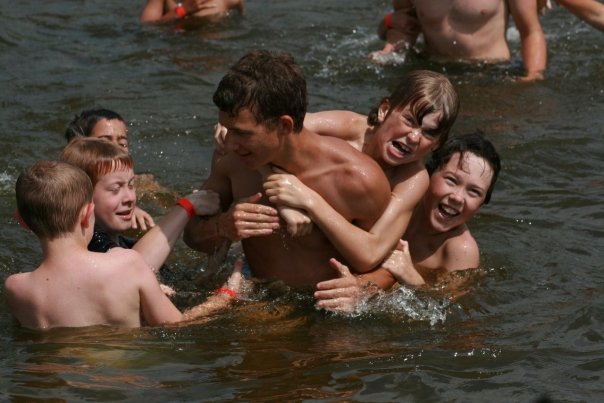Summer can be a wonderfully enriching and memorable experience; I still fondly remember my summertime weeks at Boy Scout camp. While most kids will have a wonderful time, parents should be aware of the potential health issues at camp, which the American Academy of Pediatrics addressed last year in a paper, called “Creating Healthy Camp Experiences”. It’s a good read for parents who are already planning for this summer.
 One area the AAP stresses is exercise and diet; even in a summer camp, kids may not be getting enough activity, or they are munching away on too many hot dogs and soda. While it’s hard to resist such summer traditions, I do agree with the AAP’s recommendation that camps should severely limit or even not sell any sodas or sweetened drinks at all. Having these drinks in schools has definitely contributed to the worldwide increase in childhood obesity and diabetes, and I am glad that more and more schools and camps are limiting access to these.
One area the AAP stresses is exercise and diet; even in a summer camp, kids may not be getting enough activity, or they are munching away on too many hot dogs and soda. While it’s hard to resist such summer traditions, I do agree with the AAP’s recommendation that camps should severely limit or even not sell any sodas or sweetened drinks at all. Having these drinks in schools has definitely contributed to the worldwide increase in childhood obesity and diabetes, and I am glad that more and more schools and camps are limiting access to these.
The AAP article also specifically recommends at least 30 minutes of exercise a day, which is good advice for all kids at all times of the year. It’s much easier to get such exercise in camps when kids are away from computers and TV, but it’s still important for parents to review their camp’s activity list.
Another crucial issue is first aid and safety, and parents should review the camp’s preparedness for such events. What type of first aid station or ambulance care do they have? Are their staff trained in CPR, especially the ones working at swimming pools? Can they store medicines and act appropriately if an asthmatic child has an asthma attack, or if a child with severe allergies gets a serious reaction from a bee sting?
Fortunately, such serious events are rare, and the much more common problems are minor injuries from the outdoor activities, or infectious disease outbreaks. In such close quarters, it is very common to have outbreaks of common colds and stomach infections. Skin rashes can be very annoying, especially lice or scabies outbreaks but also the common bacterial infections such as impetigo. There’s also the unfortunate worldwide rise of antibiotic-resistant staphylococcus bacteria (otherwise known as MRSA), which can cause skin abscesses which may be hard to treat.
So what’s the best way to avoid these human-to-human common but annoying diseases? Simple hand washing! I think one excellent solution is to have the alcohol gel bottles stationed all over camp, and encourage kids to use them often. Also, a bit of education on proper sneezing and coughing (covering your mouth, or sneezing into your elbow, for example) can help cut down on a germ’s spread.
Other major issues at camp are more psychological, especially homesickness and bullying. A child’s homesickness can be quite strong, so it is important for the camp staff to be well educated on this topic. It’s also crucial for the parents to slowly prepare an anxious child for their first camping trip; giving them a major say in choosing their camp can help. Also, it’s better to not make “pick-up” arrangements in case your child wants to come home early, as this can undermine your child’s confidence in their independent thinking.
Bullying, whether at camp or in school, is an often overlooked problem which is getting increasing scrutiny as newer studies show long-lasting harm in such abuse. Bullying should not be accepted as normal “boys will be boys” behavior (it’s often girls, as well!) and it should not be tolerated. Your camp should have a specific zero-tolerance policy towards bullying.
Summer camps can have valuable long-term effects on your child’s self esteem, values, leadership skills and willingness to try new things. Follow these basic health tips, and your child will have memories to last a lifetime.
(This article was originally printed in Beijing Kids magazine, where I am a contributing editor. You can click here to read the rest of my BeijingKids “The Doc Is In” columns.)
UPDATE 2024: Please follow me at my new website, DrSaintCyr.com. Also my new YouTube channel youtube.com/@drsaintcyr
